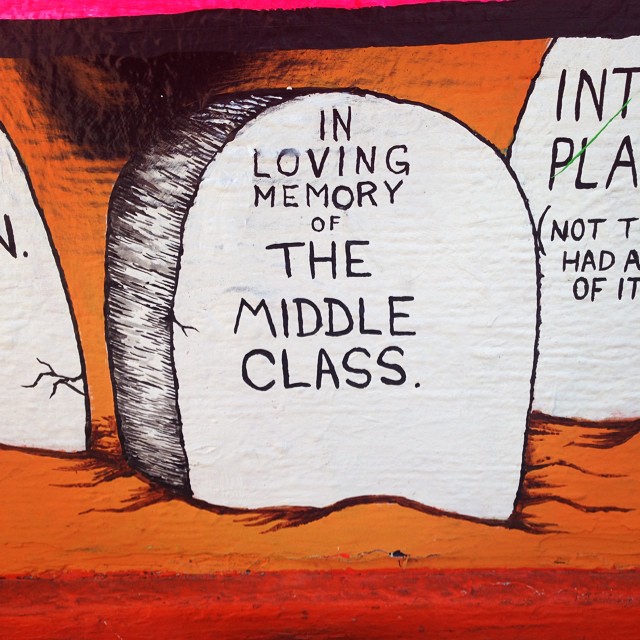| Question: How do you stop moderates from rioting? Answer: You don’t. Moderates, like Canadians and Scandinavians, do not riot. And therein lies the challenge. Richard Davis — a personal friend who writes a political column for the Deseret News — wants to rally the moderates. Donald Trump’s America may provide him a rare historical moment when moderates are, indeed, exercised. Then again, how could we tell? Davis and Jim Bennett, the son of late former Republican Sen. Bob Bennett and also a Deseret |
| | News columnist, announced this week they are forming a new political party, the United Utah Party, that will aim to attract disaffected Republicans and Democrats who are tired of partisan bickering and want to see government work toward solutions. As a first step, they plan to field a candidate in the race to replace GOP Rep. Jason Chaffetz, who recently decided the fifth term he won last November was one too many. But the reasonable, moderate middle tends to be as cohesive as dried Silly Putty. Most of them, one imagines, have responsible day jobs that keep them off Internet chat rooms and away from talk radio, where true believers feed their biases and bring new meaning to cohesive Silly Putty. They also may not think seriously about local politics until Election Day is on the horizon. Eight years ago I trudged through a spring snowstorm to the Federal Building in downtown Salt Lake City to watch a rally for a new political movement called the tea party. Even on that first day the folks there had plenty of catchy slogans, and although their agenda wasn’t entirely clear, their message was. They opposed everything career politicians were doing in Washington. A while later, I visited a group of Occupy Wall Street adherents. Its members were similarly organized around hatred of the status quo. Their slogans were cleverly focused on the 1 percent, as in the upper echelon of the income scale whose influence, wealth and power they believed were disproportionate to their numbers. In contrast, Davis told me the United Utah Party’s bumper sticker would be, “Better government starts here.” That sounds sort of like the political equivalent of “Wonder Bread is good bread,” a hard-to-argue-against, but hardly energizing, advertising slogan years ago. “Drain the swamp” it isn’t. But, to be fair, reasonable solutions and centrist positions don’t often lend themselves to rallying cries. Which may explain why we have the government we have. Davis is no stranger to difficult political things. He once was chairman of the Utah County Democratic Party, which is kind of like being sentenced to wear University of Utah clothing every day on the Brigham Young University campus (where Davis is a professor of political science). That experience taught him the Democratic Party label was too much to overcome, regardless of the quality of the candidate. “Only after long agony, I realized I can’t continue there,” he said of his former party. But because Democrats seem to be diminishing in Utah, Davis and Bennett believe the United Utah Party could begin life not as a third, but as a second party. “We think there is a vacuum in the electorate,” Davis said. And just because a party is centrist doesn’t mean it can’t rally support by tweaking voters’ inherent anger. Davis said the party will focus on the need for term limits, something the Republican Party in Utah never embraced the way Republicans once did nationwide. It also wants campaign finance reform. Both issues concern themselves with entrenched and ineffective politicians, and with ways the old guard keeps newcomers at bay. If the new party frames the arguments well, it might spark a flame beneath Utah’s reasonable class. Chaffetz’ departure does present an interesting litmus test for Trump’s young presidency and Republican leadership in the House. Voters here chose Trump last November, but not with much enthusiasm. A skeptic might say the United Utah Party will draw its support mainly from disaffected moderate Democrats, which would do little more than assure another Republican victory in the Third District. But this is a rare year when disaffected moderate Republicans may be heard from, as well. If only they can be persuaded to grab pitchforks. |


 RSS Feed
RSS Feed

